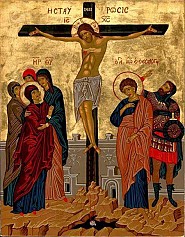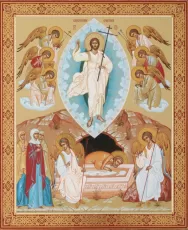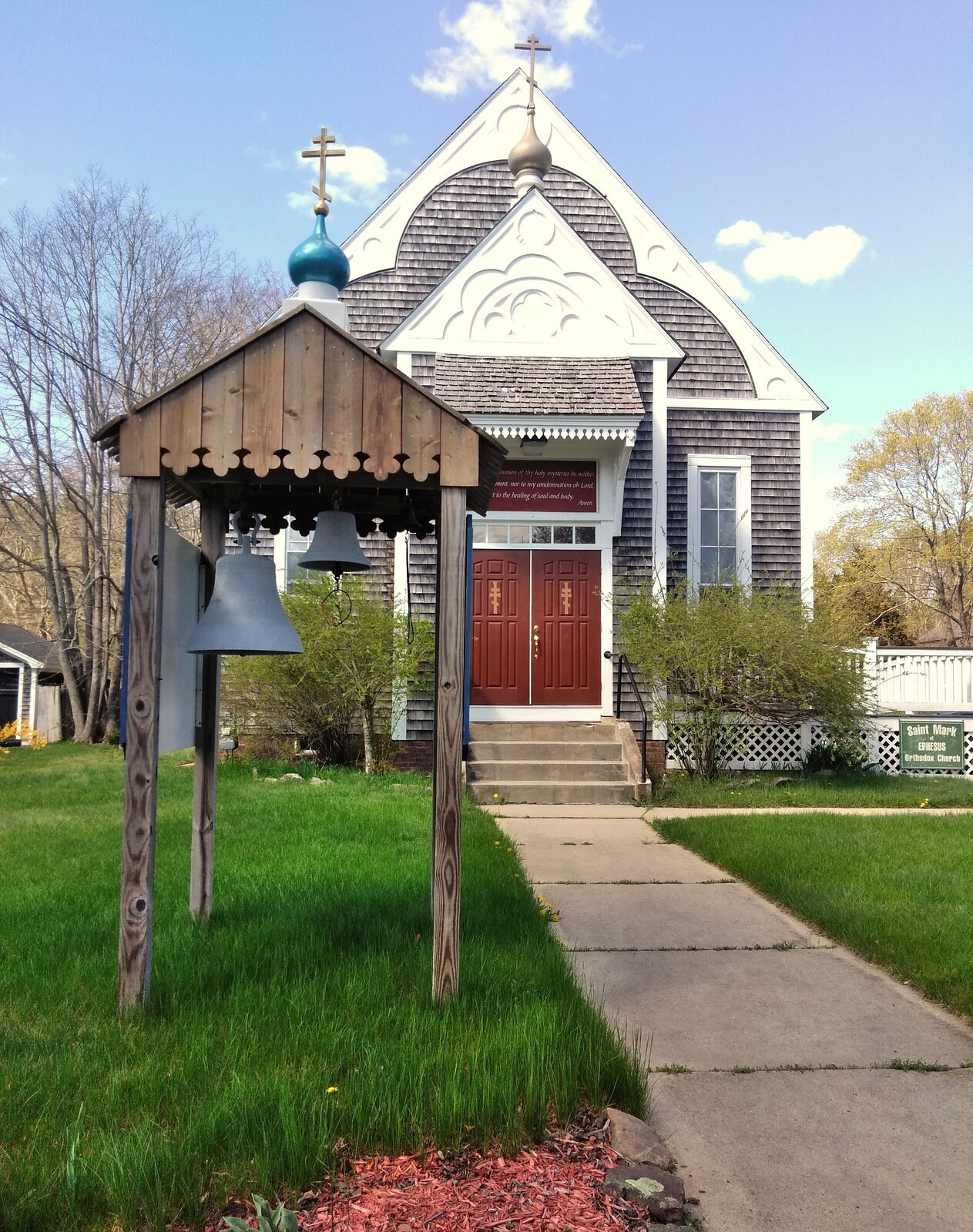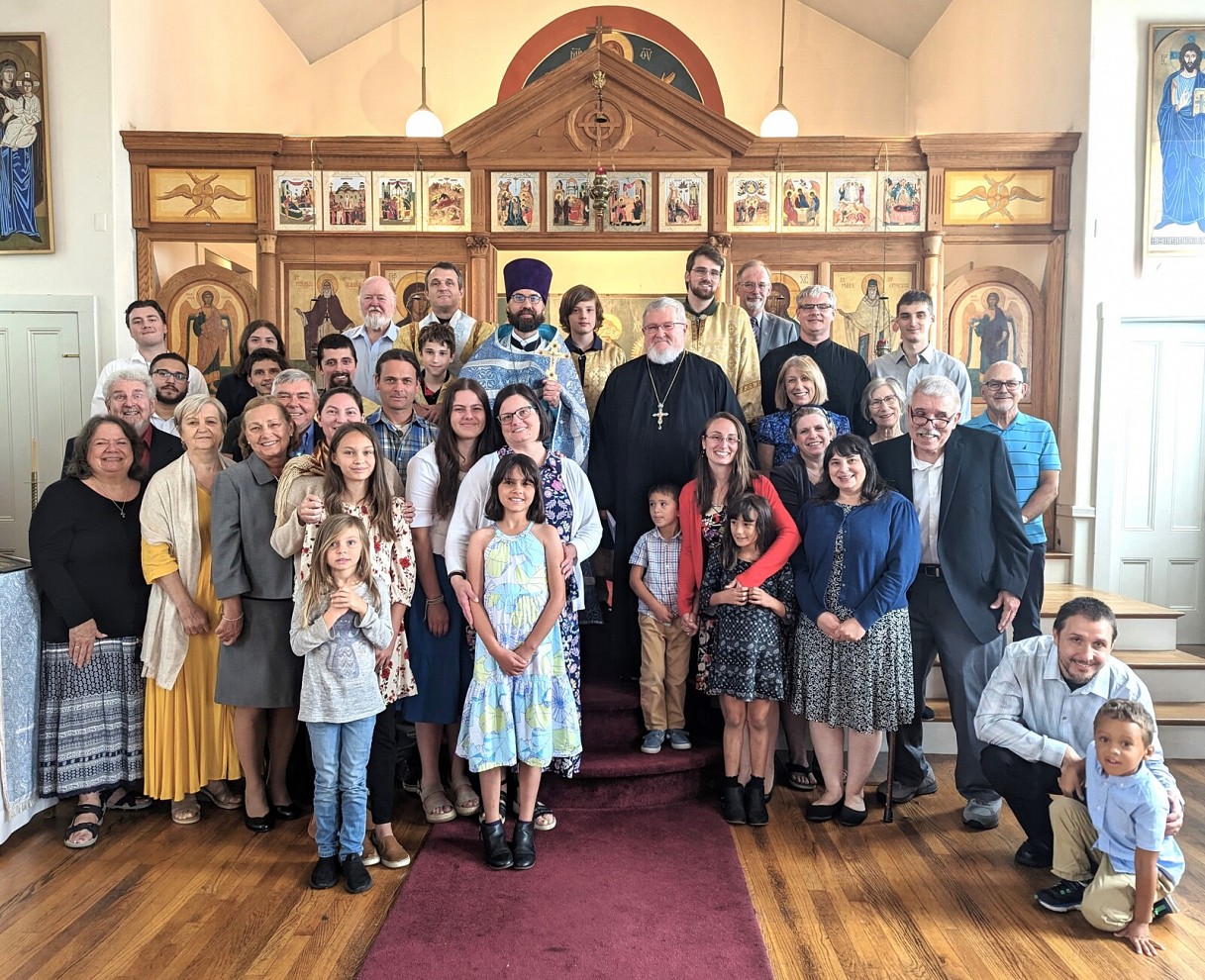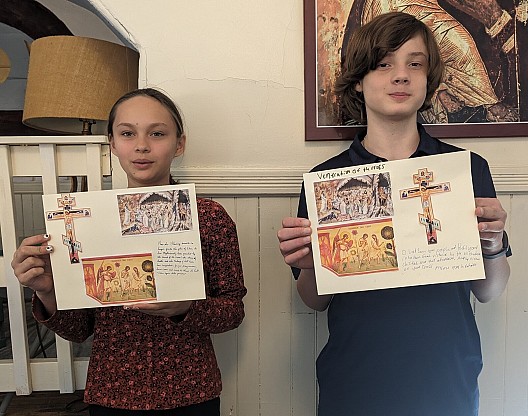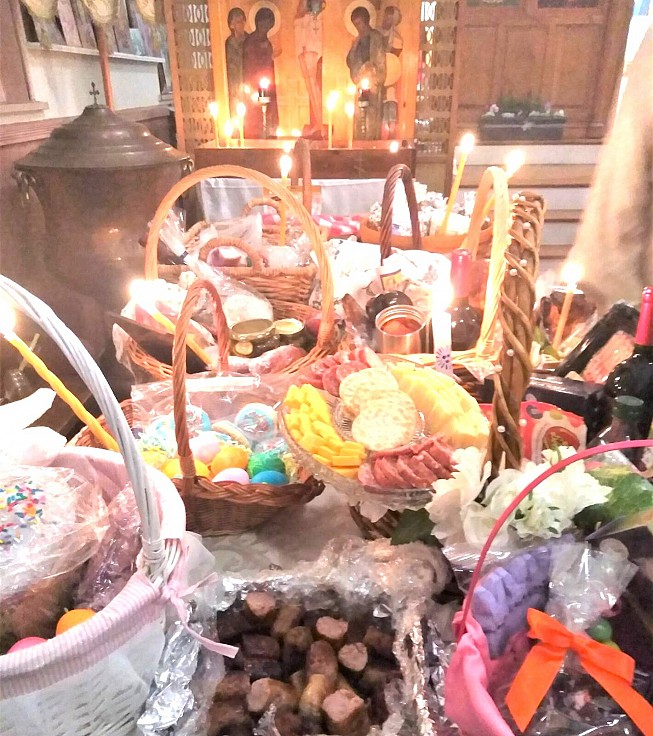Welcome to St. Mark of Ephesus Orthodox Church
We are a vibrant, growing community of Orthodox Christians belonging to the Orthodox Church in America. We are dedicated to sharing the love and teachings of Jesus Christ. We welcome all who seek to grow in their faith and knowledge of God. Our community is a place of love and support for all people, and we invite you to join us in worship and fellowship.
Sunday Divine Liturgy Third Hour
10:00 AM 9:30 AM
Great Vespers & Confession
5:00 PM on the 1st and 3rd Saturday of every month (unless otherwise noted)
Schedule of Services for Holy Week
Tuesday, April 30
6:00 pm - Bridegroom Matins
Wednesday, May 1
6:00 pm - Holy Unction (healing service)
Thursday, May 2
9:30 am - Vesperal Divine Liturgy
6:00 pm - Matins for Holy Friday with the 12 Passion Gospels
Friday, May 3
3:00 pm - Vespers for Holy Friday
6:00 pm - Matins for Holy Saturday
Saturday, May 4
9:30 am - Vesperal Divine Liturgy for Holy Saturday
11:30 pm - Compline/Nocturnes of Holy Saturday
Sunday, May 5
12:00 Midnight - HOLY PASCHA
Resurrection of Our Lord and Savior Jesus Christ
Paschal Matins | Divine Liturgy
(procession weather permitting)
Blessing of the Paschal Artos, Eggs, & Baskets
Parish Announcements
Church Cleaning Help: We are in great need of volunteers to clean the church for the months of April, May and October. If you would like to volunteer, please speak with Mat. Catherine
This Lenten Season Donate to the Pascha Flowers Fund: your generous donations will help offset the costs to beautify our church for Holy Pascha, including the purchase of potted lilies, flowers for the iconostasis, the Holy Shroud, wreaths for the doors and much more. You may donate by giving your payment to our Treasurer or simply donate through this website by clicking on the "Pascha Flowers Fund" tab. Thank you so much for your donation.
There will be a Choir Rehearsal in preparation for Holy Week and Pascha on Saturday, April 20th from 3:00-5:15 pm.
There will be no Church School on Sunday, April 28th (Palm Sunday)
The Parish Council will meet on Thursday, May 16th at 6:00 pm at the church.
The last day of Church School will be on Sunday, June 2
We continue to collect items for distribution to those in need via a local food pantry. Please leave your donation in the blue bin located in the church bookstore. Thank you so much for your donation.
